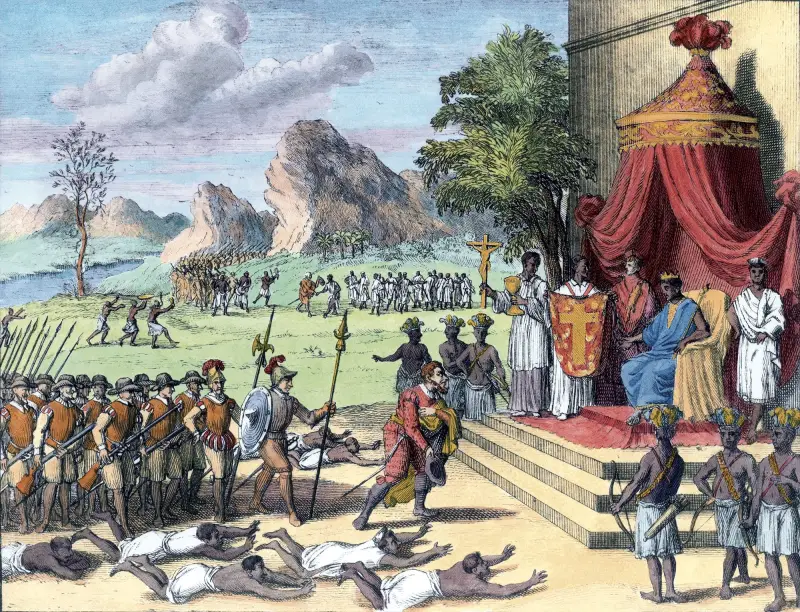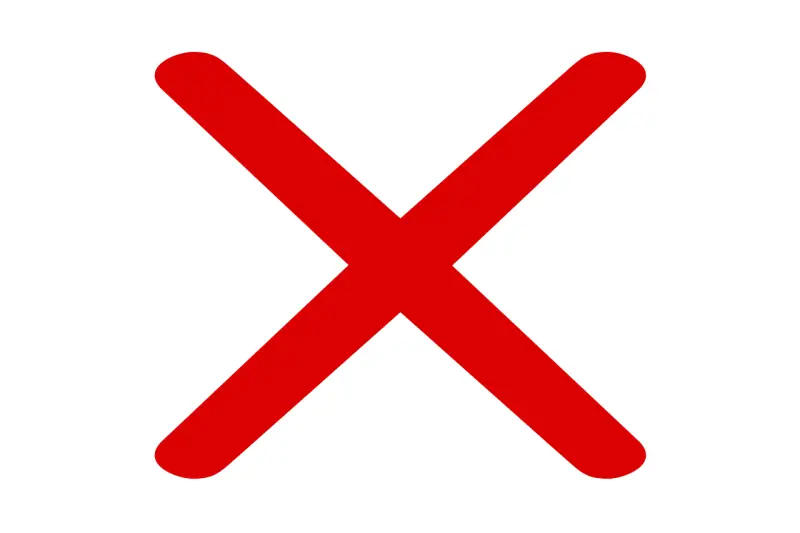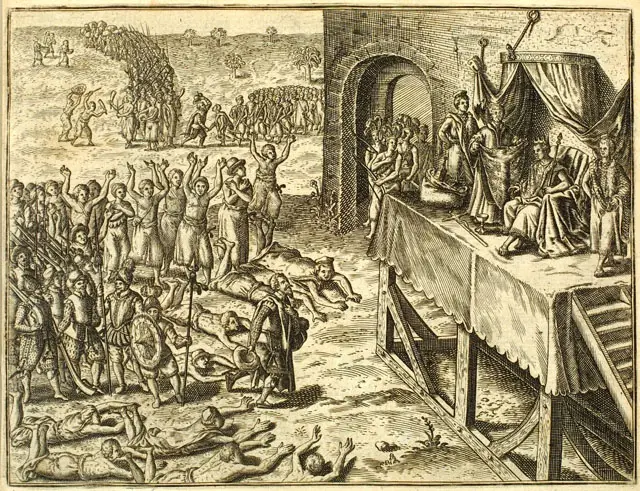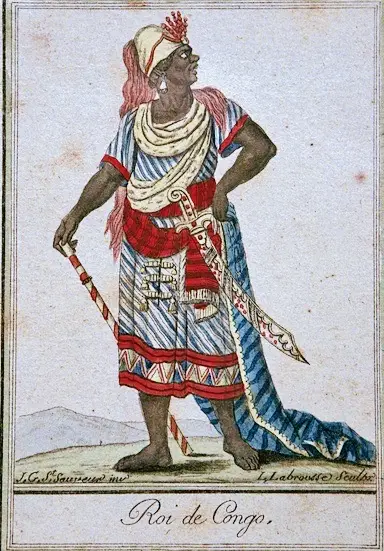The Rise and Fall of the Kingdom of Kongo

Between the Congo River and the Atlantic Ocean lies the Kingdom of Kongo. It dominated Central Africa for several centuries thanks to its political system and economy. Let's take a look at the exciting history Congo
How did Congo come about?
The kingdom appeared at the end of the 14th century. Before this, there were several weak kingdoms here.
The ancestor of the kingdom is considered to be the kingdom of Vungu, which was located in the north of the Congo River. Vungu expanded and entered into an alliance with Mpemba, another state. Over the years, both kingdoms expanded under a single ruler.
Over time, thanks to alliances and conquests, the territory of the state expanded, and the entire region ended up under one name and one king. The kingdom of Kongo appeared with its capital Mbanza.
Congo began the process of expanding its territory through military conquest. This expansion reached its peak in the 240th and XNUMXth centuries, when the kingdom controlled XNUMX km of the Atlantic coastline.

Flag of the Congo in the 17th century
Slave trade
With a population of more than 2 million, the kingdom faces the daunting task of feeding its citizens. The territory of the Congo was famous for ivory, copper, salt, and cattle were bred here. The kingdom traded these resources and stayed afloat.
The expansion of the Congo was also caused by underground human trafficking. They looked for them or after various wars and clashes they took prisoners and sold them all to the Europeans. The slave trade is a source of wealth and power. The kingdom had permanent markets in different cities. Each of them worked on certain days of the week, where slaves were sold, often brought from the northern coast of the Congo River.
Slaves were paid in local currency, Nzimbu shells. They were originally brought from the coastal city of Luanda. At first they measured the approximate cost of goods, and only then they began to use them as money for payment. You could buy anything with shells, and they were stored in special pots with a capacity of 40, 100, 250, 400 and 500 pieces.
A chicken cost about 100 shells, and a goat about 2 shells. People were the most expensive: the price of a slave was about 000 shells, and a slave - 20 shells. Oh, and once upon a time in childhood, leaves were a bargaining chip for us. I think my parents would be happy if I could buy a frozen chicken for 000 leaves.
Kings of the Congo
The kingdom was ruled by Nkani, as the king was called there. The state was divided into regions, each of which was governed by a governor appointed by the Nkani. Under the authority of the governor were local officials who collected tribute. In general, it is somewhat reminiscent of our current administrative system.
Taxes were paid not in shells, but in ivory, millet, palm wine and animal skins, which were collected from the chiefs and taken to the capital for the king. They took it once a year, and it was a special ceremony where the most powerful people of the Congo gathered, ate, got drunk and praised the king.
The tribute system was a two-way street. From local officials - gifts, from the king - favor (military protection and pleasant gifts: luxurious clothes, gourmet food). Of course, this did not reach those who actually paid taxes. Everything remained with the officials. The payment of tribute was believed to be a “divine favor,” since the king was supposedly appointed by the gods, had a direct connection with the spirit world, and was considered a guardian who protected the people from adversity. But this protection only works for those who pay taxes.
The government also had about 12 elders - advisers to the king. They were chosen from the most influential families. The key positions in the government were occupied, if translated into modern language, by the chief tax inspector and his staff, the head of justice, who headed something like a police force, and an official who managed something like a post office. The king also had an army, which consisted of slaves and numbered from 16 to 000 people in the 20th century. There were also free people (mostly artisans and farmers) and slaves, prisoners of war and debtors.
European influence
The first clashes with European countries in Africa were accompanied by violence, because the Europeans wanted to enslave the population, profit from it, and also gain land. At the end of the 15th century, when the Portuguese colonized several islands near the Congo, the Congolese came into contact with them. Portugal was one of the players in the slave trade, so it was beneficial for it to be friends with the Congo, which supplied Europeans with slaves.

Portuguese audience with the King of Congo
From the Congolese - slaves, from the Portuguese - luxury goods (from mirrors to cotton and silk). Fearing that such luxury would lead to uprisings, the king strictly controlled its consumption and allowed only aristocrats to use it.
Missionaries arrived with the traders, and some of the kings of the Congo gladly accepted Christianity. The first to do this was Afonso I, king from 1506 to 1543. Catholicism is not only a faith. He was associated with flamboyant ceremonies and wealthy Europeans. Thanks to this, royal authority increased in the eyes of the people. After Afonso's conversion, Catholicism became official and the capital was renamed São Salvador, reflecting Portuguese influence. Afterwards, Afonso founded something like Congolese Catholicism, building churches from taxes and royal assets.

Afonso I
People are attached to their traditions and culture, faith, so it is quite difficult to convert them to Catholicism. Afonso, in order to avoid drastic changes, created his own version of Christianity, and European missionaries helped him. In the Congo, Catholic teachings and traditions were combined with local ones. In the Congo, Christianity equaled wealth, so only the elite were encouraged to convert. This gave the aristocrats another way to increase class inequality.
In addition to religion and wealth, technical knowledge came to the Congo. They also brought in corn and tobacco. Of course, Portugal did not do this out of nobility. The Europeans wanted to Westernize the kingdom so that it would be easier to trade with it and use it as a starting point for the colonization of the mainland.
It is logical that this relationship was ordered to live long. The Portuguese were not particularly adept at hiding their true motives, and conflicts began due to their interference. The kings of the Congo were happy to cooperate with Portugal as long as it was useful. The situation turned sour when the Portuguese killed the king, staged raids, and stole slaves. At the same time, Portugal wanted to seize the copper mines, establish its own laws and completely convert everyone to Catholicism.
If the Congo could build warships, they would be able to dislodge the Portuguese and trade directly with Europe. Portugal did not trust Congo, and neither did she. The Portuguese realized that the kingdom was seeking to destroy them, and the kings realized that Portuguese influence was undermining their authority.
Sunset Congo
From the middle of the 16th century, affairs of the Congo quickly went downhill. The Portuguese, tired of kings who protected their interests, went south. Later this confrontation led to military conflicts.
Without Portugal's money, the kings began to have problems. The upper classes were accustomed to luxury, and the lower classes were tired of the high taxes they paid to please the tastes of the elite. The king's power was falling, and the governors were turning away from him. Why would they remain loyal to the king and pay tribute if they could cooperate directly with European traders, who were only increasing every year? Even though the Portuguese went south, the Spaniards and Dutch arrived, with whom trade was no worse.
Things changed in the kingdom in the mid-16th century when a group of warriors attacked from the south and began to take over. Instead of resisting, tired, dissatisfied and over-taxed, the Congolese rebelled and sided with the invaders. The royal family fled to the island, thanks to which they remained alive.
Now the Congo was torn apart by civil wars between various factions that wanted power. The kingdom fell into decay, and its neighbors became interested. Several interventions led to the complete sack of the capital in 1678.
By the beginning of the 18th century, the kingdom had almost disintegrated, and the region was divided among themselves by traders who formed alliances. The kings still remained, but they had no real power, and the Congo was in real chaos for a couple of centuries.
Only at the beginning of the 1960th century were the Portuguese able to include this state as part of their colony of Angola, and in XNUMX the Congo gained independence.
Information